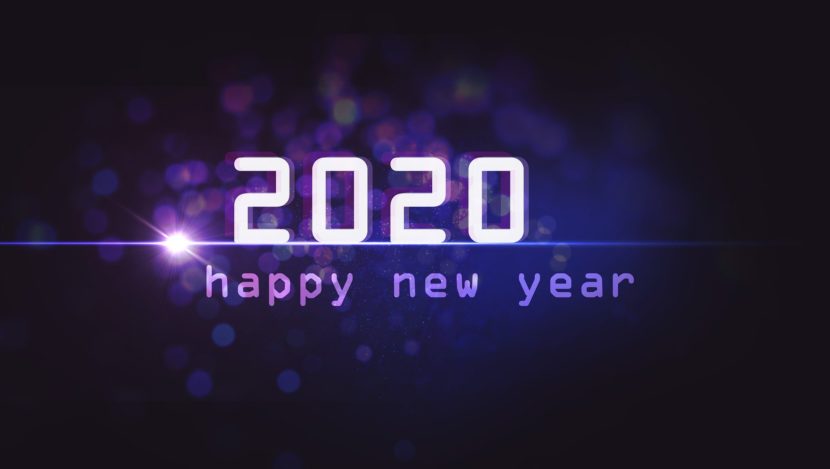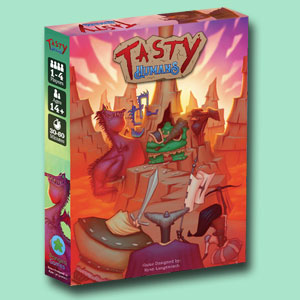I’m a big fan of New Year’s Resolutions. While choosing January 1 to start something that you’ve always wanted to do is completely arbitrary, it sure does work!
Need help on your board game?
Looking for more resources to help you on your board game design journey?
With that in mind, I want to help you come up with some New Year’s Resolutions of your own, ones specifically related to board game design. Never one to pass up on a delicious clickbait potential like “20 New Year’s Resolutions,” I’ve come up with, well, 20 of them. Pick a few that you like and see where it takes you!
1. Create your first board game.
If you’ve never created a board game or pursued a passion project, this is a great goal to start with. It’s straightforward and a lot of fun. You don’t have to publish it or market it or any of that. Just go out and make a great board game for fun. Card games count, too!
2. Play-test with game designers.
If you’re the kind of creator who has a few prototype board games in your closet somewhere, consider playing one of them with a few game designers. You can usually find them at Protospiel conventions or even local game stores or Meetup groups. You will learn a lot more about play-testing with game designers than you will even with avid board gamers. Designers notice totally different things and it’s a good experience to have.
3. Order a professional physical prototype of one of your board games.
Whether you’re making a board game for the first time in 2020 or you’re digging up an old prototype and polishing it to perfection, don’t underestimate sheer ecstasy of being able to hold your actual, physical, printed game. It’s a rush and websites like The Game Crafter and Board Games Maker make it very accessible.
4. Experiment with a theme or mechanics you’ve never used.
If you’re a more veteran board game designer, why not push yourself by trying something you’ve not tried before? Let’s say you’ve made light games. Try making a heavy game. If you’ve made heavy games, make a light game. If you’ve made board games, make a card game. Experimenting helps you grow your skills and it shows you new things that you might like!
5. Buy some board game art, even if it’s just one piece.
Similar to ordering a professional physical prototype, getting a talented artist to do a little work for your game can be a major motivator to keep going. My first game, War Co., truly became alive when I got the first art from James Masino.
6. Learn how to make more accessible board games.
“Accessible” is a loaded word in board gaming, but the basic concepts are simple: make games for as many people as you can. Try reading some articles on Meeple Like Us – they’re very informative and Dr. Michael Heron writes what could very easily be a dry academic subject with compelling intelligence and humor.
7. Launch a Kickstarter campaign.
This isn’t right for everyone, but Kickstarter can really help you start a business if you use it right. It’s a great way of gaining visibility, setting yourself up for long-term success, and – hello – earning money, too!
8. Get featured on a podcast or a blog.
One of the smartest things you can do in any business, especially the board game business, is make friends. Content creators such as podcasters and bloggers often enjoy working with guests. It’s mutually beneficial and it gets your name out there.
9. Build up one or more social media accounts on a site such as Twitter, Instagram, or Facebook.
You can read more about that in my article here: Setting Up Social Media as a Board Game Dev: A Primer Course.
10. Learn how to use Board Game Geek.
Board Game Geek is a thriving, lively community that neatly captures the general ethos of board gaming as a whole. It’s a great site to learn from, meet people, and promote your work. It’s also incredibly complex as a community and it takes some getting used to. The year 2020 is a good time to get started!
Need help on your board game?
Looking for more resources to help you on your board game design journey?
11. Learn how to use Reddit.
Much like Board Game Geek, Reddit is a complex community that takes some getting used to. There are some really good subreddits for board games such as /r/boardgames and /r/tabletopgamedesign. Might be good to look into next year!
12. Go to a board gaming convention.
While they are expensive and often require substantial time off from work, conventions can be a lot of fun. It’s worth going to one just for the experience, and if you’re really dedicated, it can be a fantastic networking event as well.
13. Launch a blog about board gaming.
I’m a fan of this one, though many would never be able to tell.
14. Build an email list.
Every product launch requires building an audience. That requires getting their attention, piquing their interest, and – as many people forget – giving them a place to go. Email lists are a very powerful tool for growing a small business, and Mailchimp lets you get your first 2,000 subscribers for free.
15. Start a Facebook group.
Facebook is, and has been, the biggest social media network for a long time. It’s not the trendiest, but the juggernaut of online connection. Groups are a great way of gathering like-minded individuals into one place to chat.
16. Learn how to sell.
Sales is a good skill to pick up for any industry. You can read more about it in my article A Crash Course on Selling Board Games.
17. Get one retailer to carry your game.
If you’ve got a game published but you sell it directly to customers, it can be a major moral victory to get your game carried in a single store. It doesn’t have to be Walmart or Target. Just try calling 10 or 15 stores within a couple of hours of you. See if they’ll buy five copies.
18. Learn how to use advertising.
Advertising gets a bad rap, but it’s still one of the best ways to get eyeballs on your project. Learn how it works. I recommend using Facebook Ads and Google Ad Words to get started. Even if you fail, the insights you gain might tell you something about your audience.
19. Participate in a board game jam.
Looking to refine your board game development skills? One of the best, and most exciting ways to do that, is to participate in a board game jam.
The basic premise is simple. You have a very limited amount of time to create a game around a specific subject. By constraining yourself with such tight time constraints, you cannot procrastinate on decisions. You just do what seems right. Sometimes, that’s exactly what you need in creative work.
20. Play the top 10 games on Board Game Geek.
Last but far from least, to make great board games, you have to play great board games. Why not commit to trying the top 10 board games on Board Game Geek in 2020?
That’s all I’ve got for you 🙂
I hope this gives you some good ideas. I want to see you win, and sometimes all you need is a goal.
Happy New Year!





